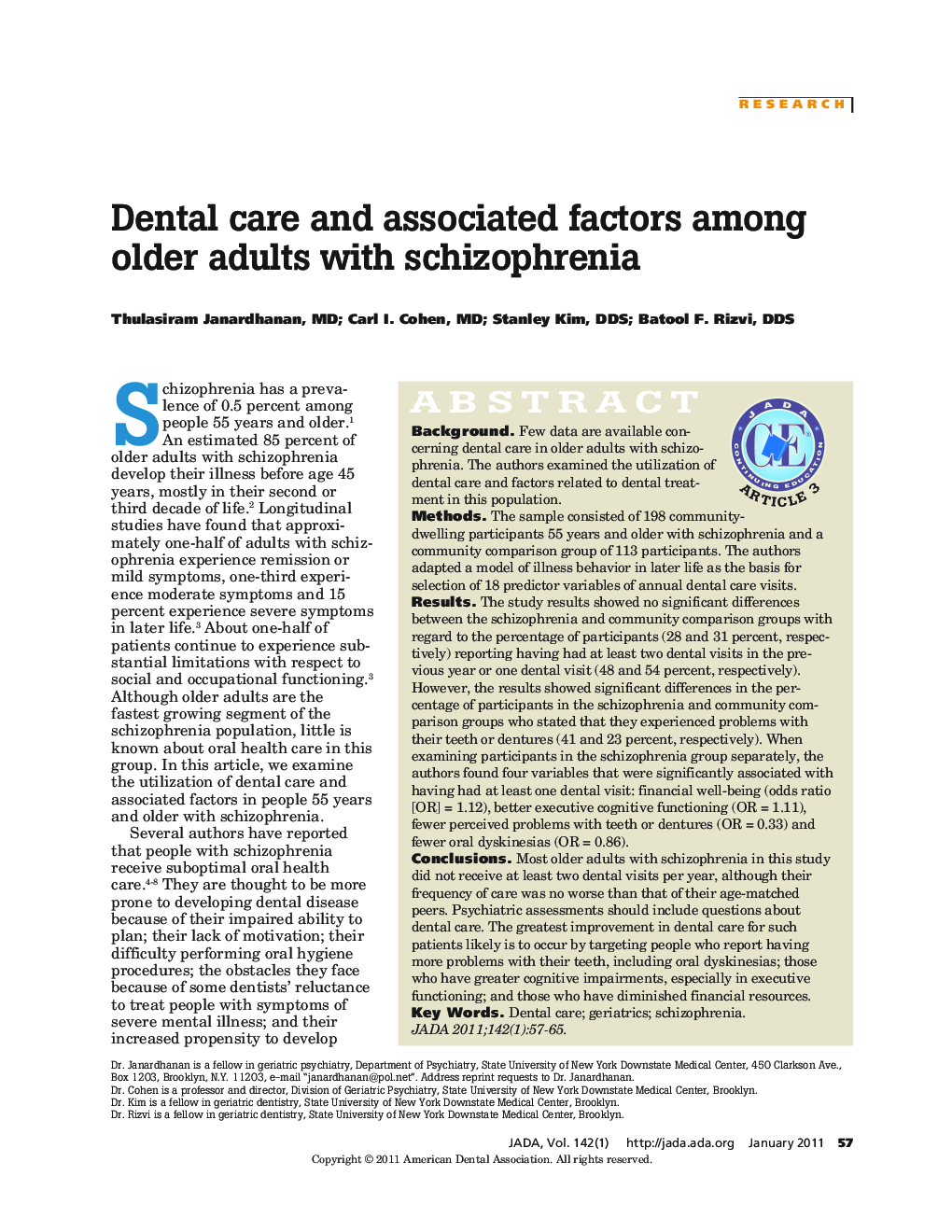| Article ID | Journal | Published Year | Pages | File Type |
|---|---|---|---|---|
| 3138396 | The Journal of the American Dental Association | 2011 | 9 Pages |
ABSTRACTBackgroundFew data are available concerning dental care in older adults with schizophrenia. The authors examined the utilization of dental care and factors related to dental treatment in this population.MethodsThe sample consisted of 198 community-dwelling participants 55 years and older with schizophrenia and a community comparison group of 113 participants. The authors adapted a model of illness behavior in later life as the basis for selection of 18 predictor variables of annual dental care visits.ResultsThe study results showed no significant differences between the schizophrenia and community comparison groups with regard to the percentage of participants (28 and 31 percent, respectively) reporting having had at least two dental visits in the previous year or one dental visit (48 and 54 percent, respectively). However, the results showed significant differences in the percentage of participants in the schizophrenia and community comparison groups who stated that they experienced problems with their teeth or dentures (41 and 23 percent, respectively). When examining participants in the schizophrenia group separately, the authors found four variables that were significantly associated with having had at least one dental visit: financial well-being (odds ratio [OR] = 1.12), better executive cognitive functioning (OR = 1.11), fewer perceived problems with teeth or dentures (OR = 0.33) and fewer oral dyskinesias (OR = 0.86).ConclusionsMost older adults with schizophrenia in this study did not receive at least two dental visits per year, although their frequency of care was no worse than that of their age-matched peers. Psychiatric assessments should include questions about dental care. The greatest improvement in dental care for such patients likely is to occur by targeting people who report having more problems with their teeth, including oral dyskinesias; those who have greater cognitive impairments, especially in executive functioning; and those who have diminished financial resources.
